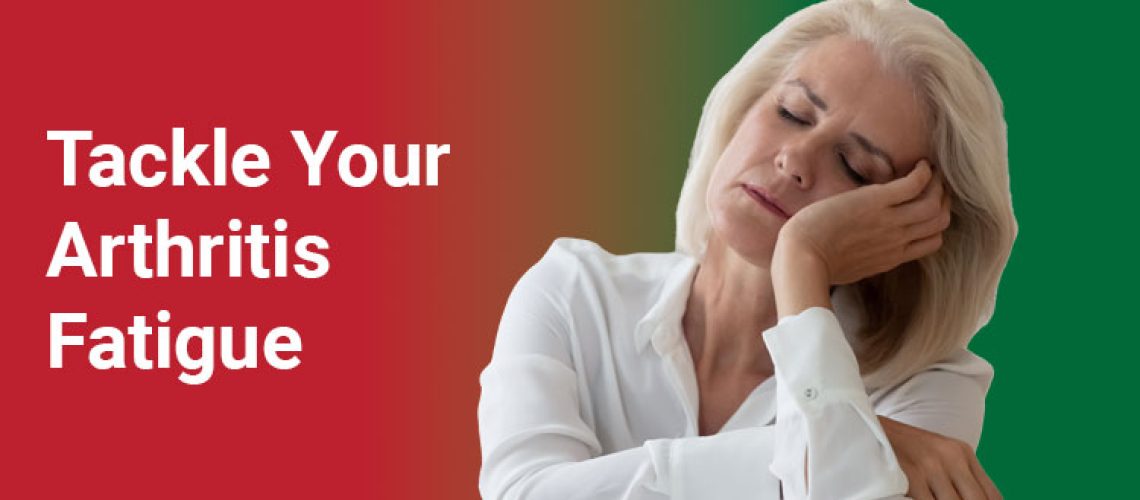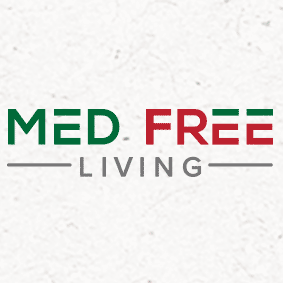

Med Free Living is your highly trusted health and wellness company that sets the standard for both high-quality products and information.
Fatigue is an extreme, sometimes overwhelming, physical and mental tiredness that can cause you to feel unmotivated.
It’s a common issue associated with arthritis and can make other symptoms, such as pain and joint stiffness feel more severe and limiting.
If you feel like your fatigue is slowing you down from enjoying your life, we are here to help!
Today we will give you three powerful lifestyle changes that can help you fight back and get the rest and energy you need to fight off your arthritis fatigue.
The first step in fighting arthritis-related fatigue is to identify the possible causes.
We recommend keeping a journal to note your energy levels throughout the day and what you did before, during and after can help.
Once you’re aware of the possible causes of your fatigue, it’s time to act. Action is what leads you to your results.Â
Tackle Your Fatigue
A few lifestyle changes that can help you combat your fatigue include the following:
1. Get up and move.
Exercise helps with fatigue in many ways.
It’s known to increase muscle mass, strength, blood circulation and flexibility, all of which boost energy and reduce pain.
Exercise also generates a brain chemical called endorphins.
These brain chemicals are known to produce a sense of well-being and vitality which can help improve night time sleep.
Next, you should focus on eating well.

2. Eat well.
I always say that common sense isn’t always common practice.
Which means you may know you should eat well but that doesn’t mean you do eat well. Knowing and doing are two different ideas that lead to two different results.
Nourishing your body with good, whole foods will help you feel the vitality and aliveness you seek.
Focus on eating plenty of fruits and vegetables, and be sure to eat adequate amounts of lean protein and healthy fats.
If you need to lose weight, reduce your portions and limit processed, high-salt, sugary foods.
Lastly, always remember to start your day with breakfast that includes lean protein and complex carbohydrates to provide long-lasting energy.Â

3. Maintain good sleep habits.
Sleep habits are an important part of getting a good night’s rest.
Avoid nicotine, alcohol and caffeine before bed. They are known to disrupt sleep.
Start getting into the habit of going to bed and getting up at the same time every day.
Yes, that even means weekends.
The following ideas will help you get a good night of rest.
Make your bedroom cool, dark and comfortable.
Structure your night time routine by following the 3, 2, 1 principle.
3 hours before bed stop eating food. Allow your body to digest and rest.
2 hours before bed stop working. That means no more emailing, checking your work phone or finishing up one final project before the night is over.
1 hour before bed have no screen time. That includes no television, no Netflix, no cell phone usage.
Use this last hour to relax your mind and body.
If you feel like you can’t seem to feel rested after consistently pursuing these three lifestyle changes, contact your doctor to discuss more ways to treat your fatigue directly.

Med Free Living is your highly trusted resource for quality products and information.
© 2021 Med Free Living All Rights Reserved, TERMS & POLICY, PRIVACY POLICY, RETURN POLICY
*These statements have not been evaluated by the Food and Drug Administration. These products are not intended to diagnose, treat, cure, or prevent any disease.